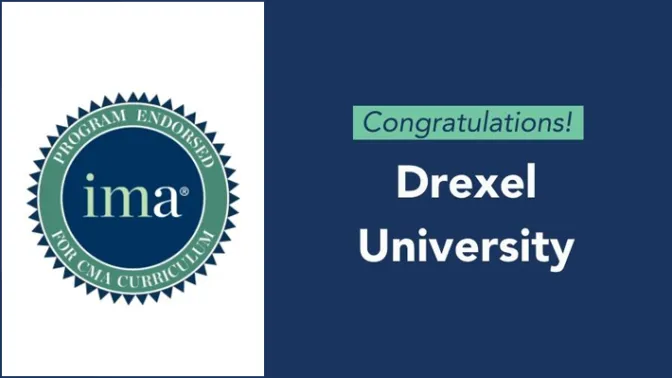
LeBow Unveils Change Leadership and Strategy Certificate: Q&A with Professor Ziegert
Organizational change is essential, but it can present challenges and sometimes fail in execution. To equip professionals with strategies for creating successful, meaningful change in their companies and on their teams, Drexel University’s LeBow College of Business has introduced its Change Leadership and Strategy Certificate. The experiential, innovative and part-time program is designed for management-level professionals from various industries who are currently leading and managing change or planning to lead such initiatives.
Jonathan Ziegert, PhD, department head and associate professor in Drexel LeBow’s Department of Management, discusses the certificate’s features and the real-world solutions it teaches professionals to prepare them — and their organizations — for success.
Q: How does the Change Leadership and Strategy Certificate meet current and/or future industry needs?
JZ: While the Greek philosopher Heraclitus famously paraphrased that “the only thing that is constant is change” more than 2,500 years ago, this sentiment certainly still applies for nearly every organization today. Given the transformative nature of work with increased technology, globalization and competition, companies and their leaders need to know how to not just deal with the vortex of rapid change, but how to proactively create and successfully lead change in a strategic fashion. This certificate develops these skills by providing actionable tools ranging from the individual to the industry level to enable leaders to holistically drive change for organizational success.
Q: What experiential-learning opportunities does this certificate program provide both in the capstone and in the other courses?
JZ: A hallmark of all the courses in the certificate is an experiential approach to learning, as this enables both an understanding and application of key skills through perspectives of both science and art. There is a science to change, and the courses cover various tools from a variety of disciplines including psychology, economics, management, sociology and other fields. At the same, there is an art to leading change such that students will learn how to put these tools into practice through experiential approaches such as case analyses, role plays, personal problem application and simulations. This experiential approach not only provides a variety of tools, but also ensures that students know how to correctly use those tools through hands-on practice throughout the courses such that they can successfully apply the knowledge and skills they learn to their organizations.
Q: What career opportunities exist for participants of this certificate program? Where and how can students of the program expect to employ the skills they gain?
JZ: While the certificate is applicable for any individual, it is especially relevant for current or aspirant middle-level leaders and managers in high-discretion industries. These individuals are uniquely situated to face pressures from above with directives to institute change, as well as from below with addressing responses to change. Given the program’s holistic focus from the micro-individual level to the macro-industry level, the certificate will enable these middle individuals to successfully navigate these dual competing demands and lead change in an effective way for individual and organizational success.
Q: How does this certificate program reflect LeBow’s unique strengths?
JZ: The Management Department within LeBow contains world-renowned scholars in the areas of leadership and technology innovation management. The certificate fuses this thought leadership to provide a holistic perspective for leading change. The program seeks to connect individual-level perspectives, such as why people are resistant to change, all the way through team and organizational levels to the industry perspective: for example, how to strategically position organizations within broader business trends. This fusion of understanding for how to strategically lead and manage both individuals and organizations allows for a broad understanding and ability to successfully drive change.
Q: Is there anything else potential candidates should know about the program?
JZ: This certificate is uniquely positioned to add valuable skills for individuals that they can apply immediately in a variety of settings and situations for leading change. We are happy to discuss students’ particular demands and need for leading change and how that fits within the certificate courses so they can best understand the ways in which the program will be personally applicable and relevant.


